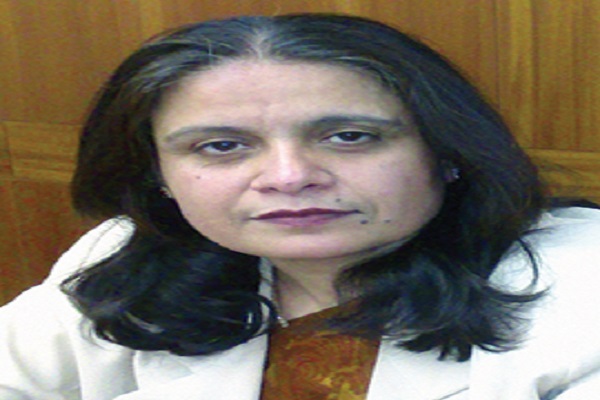
With the launch of Digital India Programme, the National Cloud is being further enhanced to cater to increasing ICT requirements of the departments, says Neeta Verma, Deputy Director General & Head-Data Centre & Web Services, National Informatics Centre (NIC), in conversation with Souvik Goswami of Elets News Network (ENN)
The Government of India has initiated ambitious Digital India programme. How important is National Cloud to be seen as the core of Digital India initiative?
The Digital India programme includes a number of eGovernnce initiatives which are using ICT infrastructure in a big way. Initiatives like the Digital Locker, Scholarships, MyGov, e-Hospital are powered through National Cloud. The Cloud enables provision of ICT infrastructure in an optimal manner. Cloud service also extends a department’s ability to go live in a very short time, as with Cloud service, departments do not have to go into the procurement and commissioning of infrastructure. It is evident from the fact that during the launch of the Digital India programme, various initiatives were made live in a span of just one month. So, the advantage of the National Cloud is that it gives the government the ability to go live at minimal cost and in a short time. Cloud also gives the opportunity to scale up infrastructure at a short notice to cater to peaks in demand of a service.

What is the present status of National Cloud?
The National Cloud was launched in 2014. This was the first National Cloud setup under ‘MeghRaj’. We have got overwhelming response for availing Cloud services. In just one year, we have 241 government users and projects already running through this Cloud. Almost all the Digital India initiatives are powered through this Cloud. Around 5,000 virtual servers have been created and allocated to various central and state government departments.

Our department, DeitY, had also introduced ‘CloudFirst’ policy in 2014, which has helped us achieve a high order of consolidation of resources and also a lot of cost saving for the government.
How has been the response from the state governments?
The states are keen to use Cloud services. In fact, some of the state governments are already using our Cloud services. Some of the state governments have also set up small Cloud setups in their state data centres to explore the potential of Cloud and obtain a better understanding of the use of Cloud for government services. However, anticipating a huge demand, we are going for a large-scale expansion of the National Cloud. We are not only upgrading Cloud infrastructures, but also adding two more nodes in two of our national data centres to make it a multi-locational Cloud and give users a choice of location.
There is apprehension about the security aspect in the Cloud technology. Share your point of view on this.
As far as security is concerned, cyber security concerns were there even when we were delivering data center services with physical servers. But I think quite a few threats which are being talked about are related to Public Cloud. Since we have a government Private Cloud, part of those threats are not relevant in this scenario. However, there are some threats such as data loss, data theft in transit, security of interfaces, etc. We handle it through technology such as encryption, secure access, supplemented by close monitoring and compliance mechanisms.
We need skilled manpower to assist us in 24×7 operations of our Cloud services. Getting skilled manpower with an experience of running Cloud operations is a challenge. Development of eGovernance software systems that can leverage the potential of Cloud is another domain, where a lot of work needs to be done
What are the future plans for the National Cloud, as it is being seen as the core of the Digital India programme?
With the launch of Digital India programme, the National Cloud is being further enhanced to cater to increasing ICT requirements of the departments. We are planning to add 100 more servers in the coming six months. Infrastructure increase, multi-location Cloud and introduction of value-added services are some of the key aspects of expansion strategy. The idea is to provide state-of-the-art and secure Cloud services to enable government departments make any initiative live in a short time without worrying about procurement or commissioning of the ICT infrastructure.
Also Read: Innovations in India’s e-Governance Have Leapfrogged: Dr Neeta Verma
What is your expectation from the industry on Cloud for government?
We need skilled manpower to assist us in 24×7 operation of our Cloud services. Getting skilled manpower with an experience of running Cloud operations is a challenge. Development of eGovernance software systems that can leverage the potential of Cloud is another domain where a lot of work needs to be done. Automation in Cloud provisioning, operations and management can increase productivity of our team manifold. We are in the process of developing a sophisticated and featured Cloud orchestration layer that shall help achieve a high order of automation, compliance to government regulations as well as deliver customised services to our users. Industry can collaborate in all of these initiatives.
Be a part of Elets Collaborative Initiatives. Join Us for Upcoming Events and explore business opportunities. Like us on Facebook , connect with us on LinkedIn and follow us on Twitter, Instagram.











